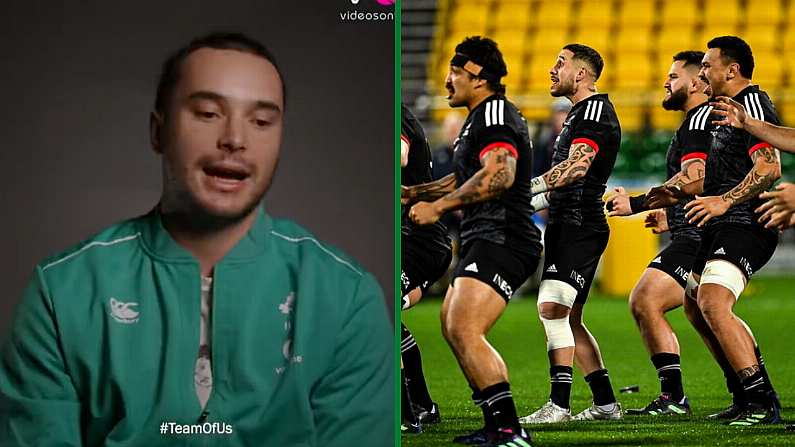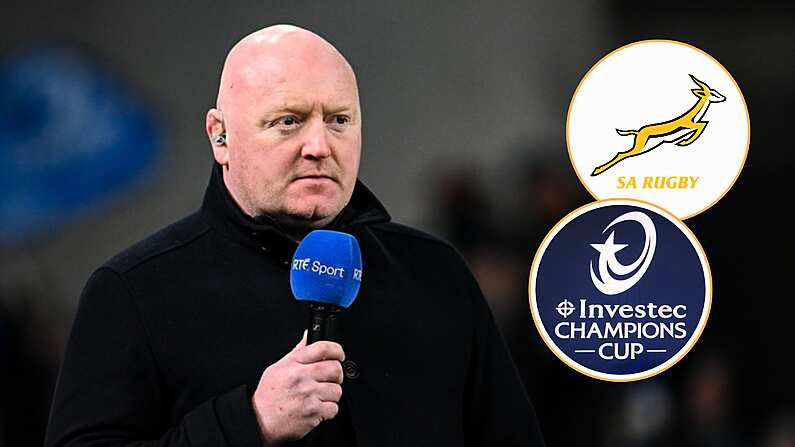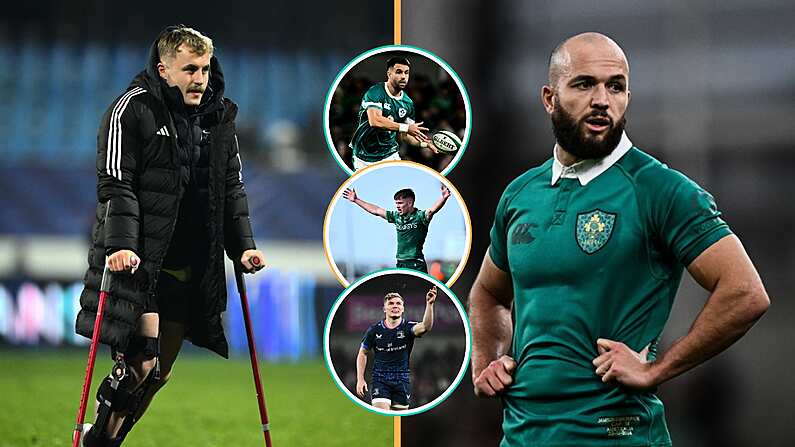RTE released their 'Tackling the All Blacks' documentary last night, which took an inside look at Ireland's 2-1 series win in New Zealand during the summer.
Ireland also played two games against the Maori All Blacks on the tour, winning one and losing one, and in the documentary, Ireland's New Zealanders, James Lowe and Jamison Gibson Park, discussed the importance of the Maori culture and a visit from ex-Munster centre Rua Tipoki.
"It's more than you you're representing. It's you, it's your family, it's your heritage, where you're from," said Gibson Park.
"You have a connection to your tribe, your iwi, that you still have," continued Lowe. "They talk about the mountain, the river that flows through the village that was there once upon a time. He [Rua Tipoki] just said for the Maori boys it was literally like this is the biggest, this is their Everest, this is what they are here to do.
It was queueing up and making the boys that were going to play in those test matches understand their motivation behind it, and that it's going to be absolute mayhem.
And in that first game it was.
Ireland vs New Zealand
Tackling The All Blacks.
6:30 tonight on @rte
The players, the coaches, facing the Haka and what it means to win a first test series in New Zealand. pic.twitter.com/4LUt6nd75S— Irish Rugby (@IrishRugby) December 29, 2022
READ HERE: Panicked New Zealand Media Reaction To Ireland's Victory Over All Blacks
Ireland head coach Andy Farrell summed up the magnitude of their series win after the third test in Wellington.
“Pleased? I don’t think that’s the word. What’s the biggest thing you can say about a group of people? I don’t know if there is a word because that’s the hardest thing to do in rugby by a country mile.
“We lost game one, you know. We lost game one and our backs were against the wall and apparently we were going to feel the full wrath of the All Blacks today and we said that’s the challenge that we wanted.
“Our best 40 minutes of the campaign was in the first half, which says a lot about how they are as a team, where they’re going and the belief that they’ve got.”










